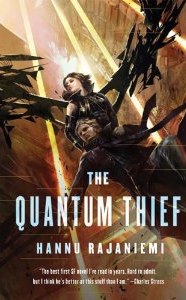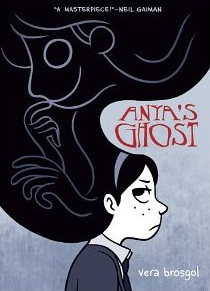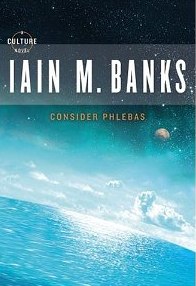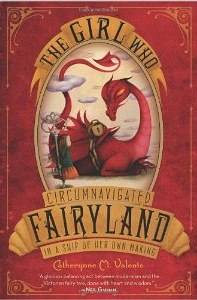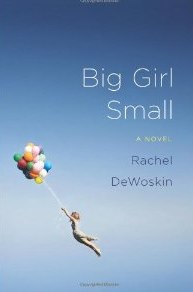Jill Lepore: Longfellow’s poem, “Paul Revere’s Ride,” is really about the abolition of slavery. Nicely argued.
Behind the NY Times paywall, Virginia Heffernan wraps up her columns on The Medium, by which she means “the Web,” with an epitaph.
Anyone who’s honest with herself knows that the Web stopped being a great place for consumers of culture a year or two ago. You think you’re reading the Web these days, but it’s reading you — gathering data on you, trying to sell you stuff, pushing you to other links. On the Web, reading is shopping. And sometimes you don’t want to shop.
She sees the Amazon Kindle Single – long form nonfiction sold for a dollar or two, like an 18th century pamphlet – as an alternative to the insistent commerce of the Web.
I should be sympathetic, having just given a talk at Web Science that began:
Reminded us of what we might forget:
The Web is large and new, it flourishes,
It seems to go from strength to strength, and yet
We do not know how strong it really is.
We must remember that we still could wreck the web.
But Heffernan’s specific complaint is absurd. If we cannot “consume culture” in the presence of capitalism, where then shall we do it? In the pages of the publicly-traded New York Times conglomerate? Perhaps with some performance art at MOMA – their current piece is made possible by MoMA’s Wallis Annenberg Fund for Innovation in Contemporary Art through the Annenberg Foundation. If that’s too mired in capitalism, we could hear a concert at Carnegie Hall, built by U.S. Steel and now “sponsored by Bank of America.” We could see a Broadway show – musical theater has never been much involved with marketing, right? – or see a ballgame at the home of the New York American League Baseball Club Inc., informally known as the Yankees®. Yes, Virginia, if you find yourself unable to consume culture in the presence of vulgar trade, you really might have a problem, but the problem’s not the Web’s.
Why should we recoil in horror at the idea that we read the Web and the Web reads us, anyway? What otherwise is the point of performance? Yes, some sites want to manipulate us into further exchanges of value. How does this differ, exactly, from the ambitions of a beautiful young actor to build a following? Or the street musician’s hope that you’ll drop a coin in the hat?
The Amazon “single” is interesting because it uses a technical change – the popularity of eBook readers – to launch a change in literary distribution, the ecology that moves writing from creators to publishers and on to readers, and moves money from readers to publishers and creators. That’s important.
Advertising on the Web is a mess, not because commerce is degrading but because Web advertising today is filled with incompetence and sleaze. In a world of VC-backed domain squatters and nearly-respectable SEO scammers, advertising-supported sites sell too many ads (and run too many lousy ads) for bargain prices. Magazine publishers have known how to handle this for a century – the old New Yorker was built on attracting costly, good-looking, and scarce ads as much as on the legendary taste of Ross and Shawn. So, for that matter, was the old Vogue. This is not exactly secret knowledge.
In The New Yorker (June 6), Louis Menand offers a brilliant survey of the ideas that underpin the American idea of College, in the guise of a book review. Indispensable
Well, my service is of a kind that cannot be paid for in money. And that means it is paid for in that way, but not very well.– Ivy Compton-Burnett, Elders and Betters
by Hannu Rajaniemi
Widely discussed at Readercon, this first novel by the Finnish Hannu Rajaniemi is cleanly written, brilliantly imagined, and overplotted. In some ways, it recalls last year’s sensation, Paolo Bacigalupi’s The Windup Girl, but here quantum mechanics is asked to play the role of Thai History, Culture, and Manners.
The solar system is divided among post-humans. The zoku, descendants of gamers, battle the Sobornost virus engineers. Jupiter has vanished, Earth is seldom mentioned, and on Mars we visit a complex society in which everyone uses external memory banks, mediated by complex contracts for how much of your sensorium and memory you wish to share with strangers. Our protagonists are a thief, a raider, a detective, and a Martian tzaddik who wants to protect the Martian Way from outside interference.
It’s fun, you’re going to need a scorecard to keep track of who wants to steal what, and why.
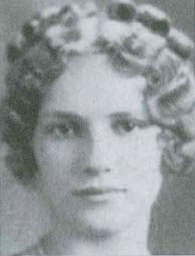
Sad news just arrived that June Aitchison Ekstedt, whom I knew as “Mrs. A”, has died at the age of 104.
For many years, she taught a wonderful class in reading for dyslexic kids in grades 1-4.
They had to study. You never underestimated to them or anyone else that it didn’t come easily, they had to work. I never had them do any work at home. I remember emphasizing to the parents not to try to teach them. They needed one steady approach every day the same way. When I would interview the parents at the beginning of the year, I was almost mean. ‘Don’t try to teach them. Don’t say anything about his reading, or anyone else’s reading to him. That’s why they were taken out of the regular class.’
It worked so well that we really thought we were a special elite. It didn’t come easy: I distinctly remember thinking to myself in first grade that this reading business was hard work and it was going to take a lot of practice before I was as fluent as my parents.
I bet I’m not the only Ph.D. who started out with Mrs. A.
by Vera Brosgol
In this contemporary graphic novel retelling of the Hungry Ghost story, Anya is the misfit teen daughter of a Russian immigrant. Walking through the park, she falls down a disused well and comes across a skeleton – and a ghost who is eager to help Anya succeed in school and to improve her standing with handsome young men. Highly praised by Scott McCloud.
Hermione is not Chosen. That’s the best thing about her. Hermione is a hero because she decides to be a hero; she’s brave, she’s principled, she works hard, and she never apologizes for the fact that her goal is to be very, extremely good at this whole “wizard” deal.
Two full sessions of Readercon addressed a familiar problem: how should we decide to what to read next?
There’s too much to read, of course; some books in my “current reading” stack have been there since 2004. As I tried to explain in one of the sessions, simply knowing what to read about your reading is a formidable task. If you want to hear about the really great new books that have recently appeared, after all, you might reasonably keep track of Book World, Publishers Weekly, The NY Times Book Review, NYRB, TLS, and maybe The Believer, The Atlantic, and Harpers. That’s just too much.
And, as Michael Dirda pointed out in response, that won’t help you with anything except contemporary reading. Don D’Ammassa explained that he reads for three hours when he wakes up, and another three before bed; Dirda simply reads all the time.
I need a better reading chair.
by Ian M. Banks
The first book of the Culture series, this exciting adventure can’t hold a candle to its successor, The Player of Games. John Clute (Encyclopedia of Science Fiction) gets it exactly right: this is the story of a mercenary who chose the wrong side, and who fights for the conventional heroes of space opera against an enemy who are simply better. Here we see the Culture from outside and we do not always view it with sympathy; it shelters ghastly cannibal cults and seemingly stands for little save sybaritic pleasure. Only in the epilogue do we sense that pleasure is not necessarily so bad, nor does eternal struggle toward an illusory goal accomplish much beyond destruction.
A video of my talk on Flocks, Herds, and Stories: temporal coherence and the long tail is now available from the ACM. (Slides are here; commentary here).
The last words of the talk are cut off. They should be:
They are the raw material with which Web science works.
Readercon is a very strange event, a three-day gathering of 500 writers (and voracious readers) in a modest suburban-Boston hotel. The program is filled with carefully-planned panels. No one gets tenure points, no one sells much of anything besides books and the occasional manuscript. But the caliber of the talks frequently compares favorably to highly selective and invitational academic conferences.
I missed Friday with car trouble, but otherwise had a delightful time. I bought a bunch of books. C.S.E. Cooney’s fantastic long poem, “The Sea King’s Second Bride,” won an big prize. The audience won the famous Kirk Poland bad writing competition, a game show in which contestants start from a published passage and invent what comes next, competing to be judged the most plausible. Where else can you see fine writers expound on a monster with “a claw the size of a nubile girl?” (This could be a lot less fun, of course, if the passage in question was your howler.)
The program chair was Rose Fox, who did a remarkable job in finding intriguing topics (“SF as Tragedy” with Clute, Delaney, Dozois, Malzberg, and Sleight; “The Speculative Fiction of Mark Twain”) and populated panels with lots of fascinating people. All of this is done with little or no budget: the conference registration fee is $50 and there are no sponsorships.
A new version of Tinderbox is available.
Tinderbox 5.9.2 is a fit and finish release, but it offers a slew of important improvements. Upgrade, and lots of things will simply work better. See the release notes in the Help menu for all the details.
As usual, this release is free if you purchased or upgraded your copy of Tinderbox in the page year.
Clare Hooper points to a the value of mixing qualitative and quantitative methods in Web Science.
She points to a very intriguing CACM piece by Judy Robertson entitled “Stats: We’re Doing It Wrong;” even the minority of submitted research papers that report statistically significant results on reasonably large groups, it seems, are generally using the wrong statistical tests.
It’s worse than it appears. Robertson is especially critical of Likert-scale analyses, which begin with everyone’s favorite style of question:
The software was useful in my work:
Strongly Disagree...Disagree...Agree...Strongly Agree
These results often fall afoul of the The Media Equation – the compelling desire to praise the computer we’ve been using in order not to hurt its feelings – or simply to pleasing the desires of the investigators. Worse, though, the sort of questions we can ask here are not the questions to which we require answers. It’s nice that a program is detectably more pleasant to use, but that’s not the point: we’re building tools to let people do stuff they couldn’t do otherwise.
The software was so unpleasant to use that I’d prefer to make a terrible mistake than to use it:
Strongly Disagree...Disagree...Agree...Strongly Agree
When we study a kiosk about the Holocaust, we don’t really care about ease of use or usability or graphic design. What we care about is: Never Again. Other things may be easier to measure, but that’s not a compelling argument for neglecting the goal. Nor is that knowledge beyond our ken, forever a matter of faith or a question of taste. We know a lot of stuff that works, but you can’t weigh Catch-22 or The Naked and the Dead or Cat’s Cradle or Shoah or Das Boot on a Likert scale.
by Catherynne M. Valente
I picked this up expecting His Dark Materials, but it’s closer to Winnie The Pooh. This is the story of a girl who embraces experience without a second thought. When the Green Wind comes to her window and invites her to faerie, she doesn't think twice.
The most striking thing about a charming children’s fable about a Girl Who Says “Yes” is the reminder that so many feminist heroines, from Elizabeth Bennett to Hermione Granger, are girls who stand bravely and say, “No.” More precisely, they stand athwart the road upon which society has placed their future and they shout defiance, though in a number of stories (notably the Twilight series), what they refuse is more explicit and conventional. It’s not always true, of course. Pullman’s Lyra is not a girl who says “no:” she is a girl who lies. Mary Russell, consort of Laurie King’s aging Sherlock, considers comment on such matters as personal fate unseemly, unnecessary, and perhaps undignified. But, yes, Valente has a point: a lot of our YA heroines have always been Buckley Conservatives, and the change sets this fable off on an interesting foot.
The wonder of embracing “yes” is hard to sustain in this Parsifal story, not least because our heroine, young September, is chiefly called upon to sacrifice things (one of her shoes, and then, twice, all her clothes) for which she scarcely cares.
On page 45 of Craig Hockenberry’s iPhone App Development: the missing manual
, we’re shown the idiom:
if (exclamationCount != nil) {
[exclamationCount release];
exclamationCount = [nil retain];
}
I'm missing something, obviously. Since [nil retain] does nothing and returns nil, so why not write
exclamationCount=nil; ?
Thanks to boring bits of confusion and a friend who took his iPhone for a nice swim, last night’s dinner came together at the last moment.
- homemade new pickles
- crudites with Linda’s wild dip
- gougères
- one lacquered rib
- vinho verde
- absinthed salmon rillettes, buttermilk rye bread
- duck (Super 88) braised in fresh orange juice with surprising amounts of garlic, ginger, spring onions, and fresh lemongrass.
- writer’s block grenache
- cheese with balsamic cherries
- cornmeal shortcakes, blueberries cooked with honey and thyme, lemon marscapone
The big winner was the bread. I started with Ruhlman’s buttermilk dinner rolls, scaling back to 25 oz. flour. I used about 5 oz. rye flour and 20 oz. of bread flour. I also swapped in two eggs for the corresponding weight of buttermilk, and baked ot in a buttered loaf pan instead of making small rolls.
At Super 88, the fellow ahead of me in line was buying about 500 scallions. Super 88 has ducks for sale. They might not be quite as good as the ducks at Whole Foods and Savenors, but they cost $7 rather than $21. Hmmm.
by Rachel DeWoskin
The Boston Globe loved this book, which follows or perhaps responds to Anita Shreve’s Testimony in recounting the aftermath of a hookup sex tape at an elite private school. Where Testimony was told from many points of view (and had limited sympathy with the one girl in the tape), Big Girl Small is very much focused on the girl, who here happens to be a dwarf. Big Girl Small seems to forget that love is real and that sex is sometimes nice. In making the heroine a Little Person, we veer into the hazards of allegory on the one hand and the Problem Play on the other, and these seem unnecessary hazards. Armistead Maupin’s Maybe The Moon.
DeWoskin’s real interest is neither in sex tapes nor little people but rather in the friendships that join young women, and she draws these with flair and precision.
J. C. Hutchins describes a “transmedia” approach to storytelling with immersive, interactive illustration. The mockups are lovingly crafted and worth a look. The hypothetical story, on the other hand, repeats a common myth, endemic to new media wannabes through the ages, that the detective story is chiefly about discovering answers.
Let’s pick up our near-futuristic detective thriller from where we left off: In the image above, the story’s “scanner” has correctly identified the mysterious villain, and the reader is rewarded with on-screen biographical information about the character. There’s no need to articulate this moment of discovery using novel-style text later in the tale; the reader himself experienced it. Perhaps this information could be added to an interactive “dossier,” so the reader can review it whenever he wishes in later chapters.
Hutchins buys into Hamlet On The Holodeck without showing much awareness of the problems I call “My friend, Hamlet”, nor does he show a lot of interest in the distinction between story, plot, and presentation. So this is essentially a 1987-style proposal, with gorgeous mockups; there’s even a commenter eager to suggest “Choose Your Own Adventure!” as inspiration.
